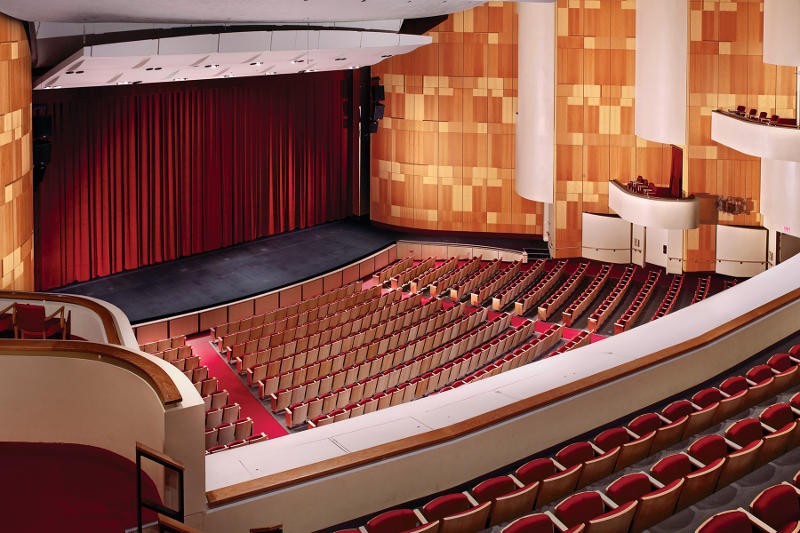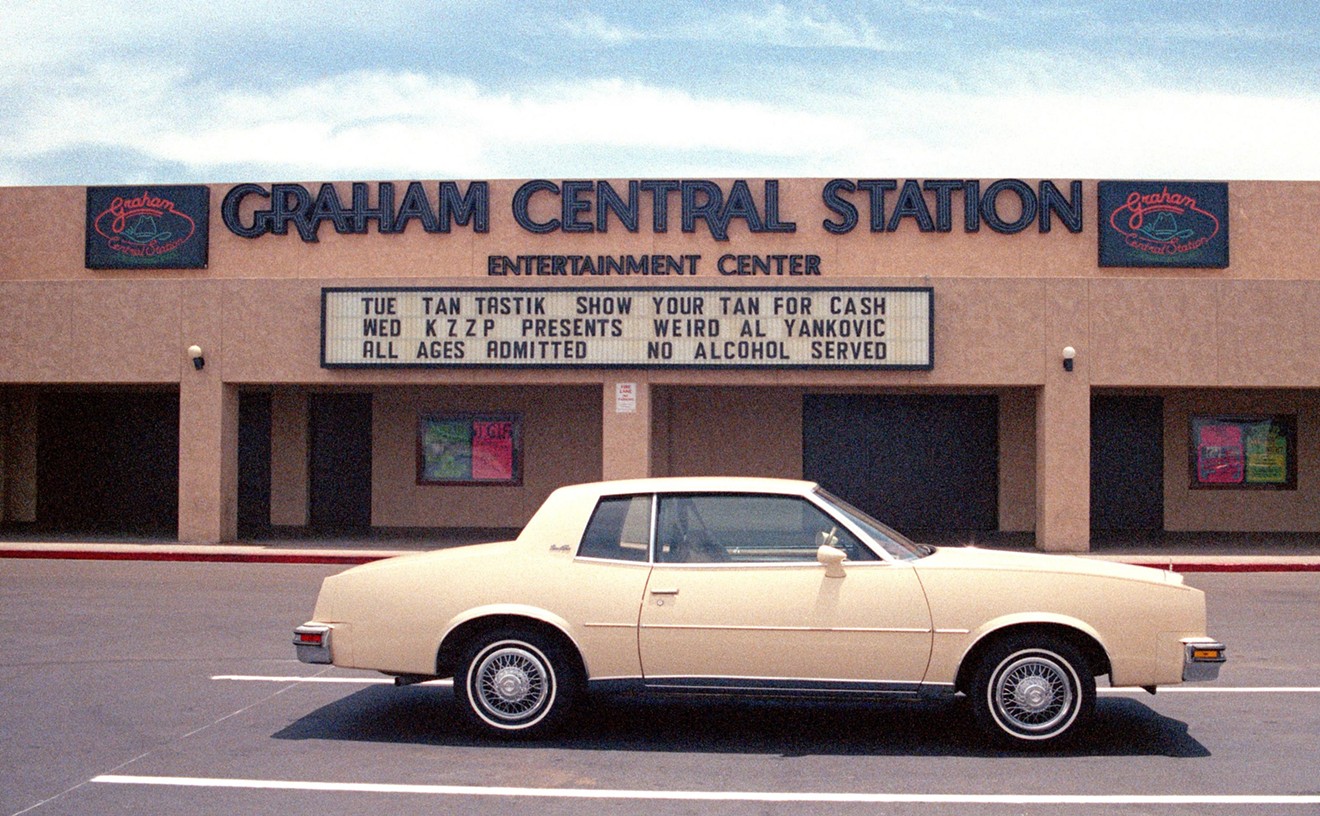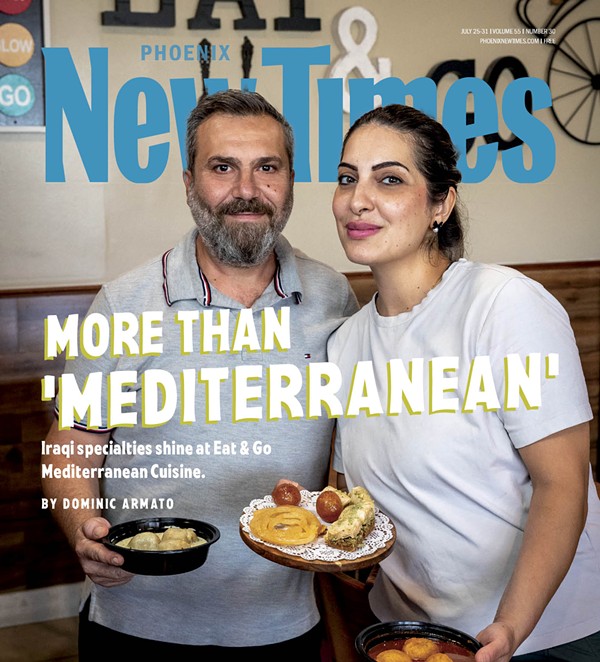Times are tough for all musicians during the current health crisis. Venues are closed; tours have been postponed or canceled. Those in the pop music sphere have found some creative ways to make ends meet through merchandise sales, streaming royalties, and putting shows on Facebook.
For classical musicians, though, the coronavirus pandemic presents fewer opportunities, as violinist Jennifer Koh recently explained to NPR’s All Things Considered.
“In terms of streaming, we don’t really have the ability to monetize as much as other fields of music, because for us the place where we are able to make income is really from live performances,” Koh said.
The Phoenix Symphony, for example, has 66 full-time musicians. Merch sales aren’t going to offset the loss of income its musicians will see now that the remainder of its 38-week season has been canceled. One-third of the administration and artistic staff were laid off, and remaining personnel had their salary reduced.
To put that wage cut in perspective: Before the layoffs were announced, new performers who won their audition for the 2020/21 season would make a base salary of $56,620, according to the symphony’s homepage. That is a few thousand less than the average household income in Arizona, per the United States census.
As Koh noted, live performances are very much the lifeblood of institutions like the Phoenix Symphony. In 2018, nearly half of the nonprofit’s $13 million budget came from ticket revenue, with the remainder coming from corporate and public donations. Musicians are counting on symphony patrons to donate so they can take the stage at Symphony Hall when the new season begins in September.
The current situation is not unlike the one former Phoenix Symphony president Jim Ward faced when he was hired in 2011 to turn the fortunes of the institution around in the wake of the Great Recession.
Ward explained to The Baltimore Sun last year that to bring the symphony back into the black, he cut its budget by nearly a third and asked musicians to freeze their wages for a year. He expanded programming to include more family-friendly fare as well as introduced new outreach and educational programs. The strategy worked, but Ward knew that staying solvent would continue to be a struggle.
“We’re still not out of the woods,” he said. “It’s a knife fight every day.”
Coronavirus wasn’t in the headlines when Suzanne Wilson took over for Ward on January 21, but now she is facing her own challenges as her tenure begins. She went from the usual tasks of building relationships with board members and the community to strategizing what the symphony’s next steps would be as the situation caused by COVID-19 changed by the minute.
“This is a struggling chapter for everyone,” she says. “I’m obviously looking at the financial realities of the organization.”
As the symphony’s cash-strapped musicians struggle to get through this unprecedented moment in time, Wilson’s goal is to get everyone to the opening day of the 2020/21 season in September.
She has reason to be optimistic that things will turn around. Wilson says donors have been stepping up. The organization is also continuing to provide health, disability, and instrument insurance while looking into all available options to help with the financial recovery, including the recent stimulus package and National Endowment for the Arts funding.
“The virus and the economy exacerbated our financial standing,” says Wilson. “We’re doing everything we can to make sure our season next year is as special as it has been in the past.”
[
{
"name": "Air - MediumRectangle - Inline Content - Mobile Display Size",
"component": "18478561",
"insertPoint": "2",
"requiredCountToDisplay": "2",
"watchElement": ".fdn-content-body",
"astAdList": [
{
"adType": "rectangle",
"displayTargets": "mobile"
}
]
},{
"name": "Editor Picks",
"component": "16759093",
"insertPoint": "4",
"requiredCountToDisplay": "1",
"watchElement": ".fdn-content-body",
"astAdList": [
{
"adType": "rectangle",
"displayTargets": "desktop|tablet"
},{
"adType": "rectangle",
"displayTargets": "desktop|tablet|mobile"
}
]
},{
"name": "Inline Links",
"component": "17980324",
"insertPoint": "8th",
"startingPoint": 8,
"requiredCountToDisplay": "7",
"maxInsertions": 25
},{
"name": "Air - MediumRectangle - Combo - Inline Content",
"component": "16759092",
"insertPoint": "8th",
"startingPoint": 8,
"requiredCountToDisplay": "7",
"maxInsertions": 25,
"watchElement": ".fdn-content-body",
"astAdList": [
{
"adType": "rectangle",
"displayTargets": "desktop|tablet"
},{
"adType": "rectangle",
"displayTargets": "desktop|tablet|mobile"
}
]
},{
"name": "Inline Links",
"component": "17980324",
"insertPoint": "8th",
"startingPoint": 12,
"requiredCountToDisplay": "11",
"maxInsertions": 24
},{
"name": "Air - Leaderboard Tower - Combo - Inline Content",
"component": "16759094",
"insertPoint": "8th",
"startingPoint": 12,
"requiredCountToDisplay": "11",
"maxInsertions": 24,
"watchElement": ".fdn-content-body",
"astAdList": [
{
"adType": "leaderboardInlineContent",
"displayTargets": "desktop|tablet"
},{
"adType": "tower",
"displayTargets": "mobile"
}
]
}
]












